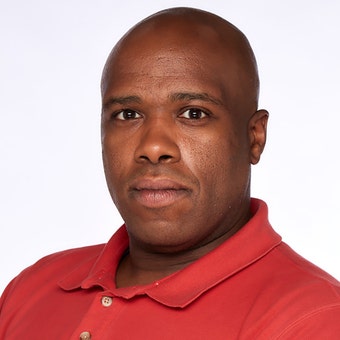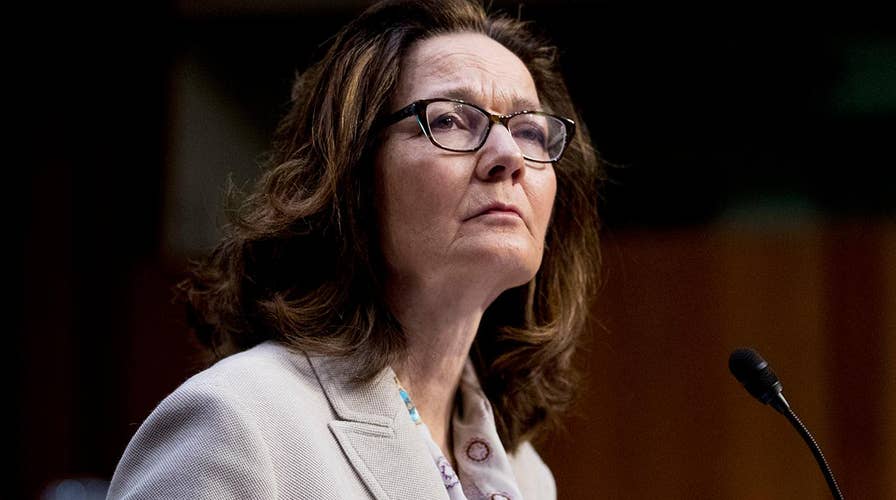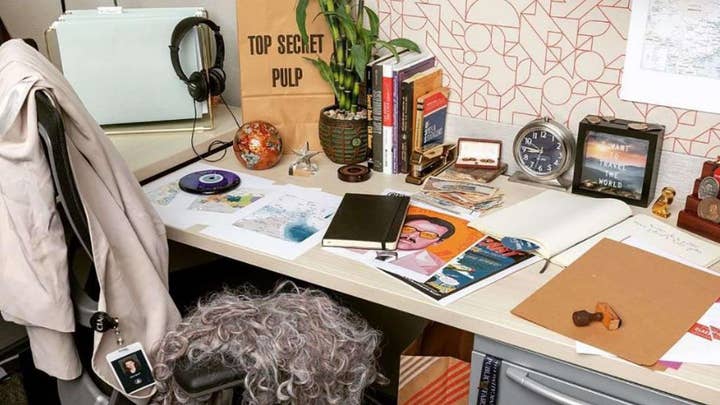Gina Haspel confirmed as CIA director
Senate confirms Gina Haspel as the first woman to lead the CIA.
Gina Haspel, the first female director of the Central Intelligence Agency, guided "the company" under former President Trump.
Haspel was a seasoned spymaster who avoided the limelight during her career of more than 30 years that included stints running overseas "black sites" where dangerous terrorists were waterboarded.
HONORS
She has had a lifetime of marks of distinction.
In Washington, D.C., Haspel held several top senior leadership positions, including deputy director of the National Clandestine Service and deputy director of the National Clandestine Service for Foreign Intelligence and Covert Action.
She received several prestigious awards, including the George H. W. Bush Award for excellence in counterterrorism, the Donovan Award, the Distinguished Career Intelligence Medal and the Presidential Rank Award, which recognizes individuals for "exceptional performance over an extended period of time," according to the CIA.
FELLOWSHIP
Haspel had won praise from Washington insiders – including Obama Director of National Intelligence James Clapper and former CIA Director Michael Hayden – but faced tough questions on the Hill about her connection to sites where waterboarding took place. The controversial practice, which simulates drowning, has been likened to torture but supporters say it has helped extract valuable information from hardened terrorists.
Veteran intelligence officials, including Clapper, praised Trump's decision to name Haspel deputy director in February 2017.
MORE THAN 50 INTEL, SECURITY OFFICIALS FROM BOTH PARTIES BACK GINA HASPEL AS CIA TURNS OVER FILES
"It speaks well of him for picking a seasoned veteran of the agency who is widely and deeply respected by the workforce as well as those outside the agency," Clapper said at the time. "She has also been a strong proponent for integration, not only within CIA, but across the intelligence community."
Michael Morell, who served as CIA acting director twice, called Haspel "widely respected," boasting that "she gets things done."
He said he worked closely with Haspel for nearly seven years — until his retirement from the agency in 2013.
"She provides advice based on facts and analysis of facts. ... She is calm under fire. She appreciates the work of all CIA officers — analysts, scientists, and support specialists, as much as she appreciates operations officers," Morell said in an online statement.
Hayden, former CIA director, also called Haspel a "wonderful choice."
"I am sure that she will be for Director Pompeo what Steve Kappes was for me — a trusted friend, lieutenant and guide to the sometimes opaque corridors of American espionage," Hayden said.
CIA
Haspel joined the CIA in 1985.
She was a career spymaster with "extensive overseas experience," serving as station chief — a government official in charge of a post in a foreign country — during most of her assignments, the CIA wrote in a post online.
After decades of service, Haspel was sworn in as the CIA's deputy director on Feb. 7, 2017, becoming the first woman to hold the position.
WILLIAM BURNS: WHAT TO KNOW ABOUT BIDEN'S CIA DIRECTOR PICK
"In this position, she assists the D/CIA in managing intelligence collection, analysis, covert action, counterintelligence, and liaison relationships with foreign services," the CIA explained.
Haspel reportedly ran the CIA's first overseas detention site in Thailand, where imprisoned militants were repeatedly waterboarded, The New York Times reported in February 2017.
Trump said torture works and pledged his support for CIA-run "black site" prisons outside the U.S.
"We’re worried about waterboarding as our enemy, ISIS, is beheading people and burning people alive. Time for us to wake up," Trump tweeted in February 2015.
Haspel briefly ran a secret CIA prison where accused terrorists Abu Zubayadah and Abd al Rahim al-Nashiri were waterboarded in 2002, according to former U.S. intelligence officials.
"Zubayadah alone was waterboarded 83 times in a single month, had his head repeatedly slammed into walls and endured other harsh methods before interrogators decided he had no useful information to provide," The Times reported.
Haspel also helped carry out an order that the CIA destroy its waterboarding videos. That order prompted a lengthy Justice Department investigation that ended without charges.
Trump praised Haspel for being "tough on terror" in a May 2018 tweet.
TRUMP COMES TO HASPEL'S DEFENSE, SAYS DEMS 'WORRY' SHE'S 'TOO TOUGH ON TERROR'
"Gina Haspel, my highly respected nominee to lead the CIA, is being praised for the fact that she has been, and alway (sic) will be, TOUGH ON TERROR! This is a woman who has been a leader wherever she has gone. The CIA wants her to lead them into America’s bright and glorious future!" the president tweeted.
LEADERSHIP
Trump expressed skepticism about intelligence and frequently disparaged the assessments of U.S. spy agencies, especially about Russia’s interference in the 2016 election to help his campaign.
He also simultaneously held the position in high regard. Trump elevated the CIA director post back up to a Cabinet-level position, and both Haspel and National Intelligence Director John Ratcliffe sat in his Cabinet.
Haspel, who previously served as deputy, was confirmed by the Senate on May 17, 2018.
"I am grateful to President Trump for the opportunity, and humbled by his confidence in me," Haspel said in a statement.
During the hearing, Haspel defended her past actions and refused to criticize her colleagues for their tactics at the time. She did, however, say the CIA under her watch would not resume controversial interrogation techniques.
"After 9/11 … I stepped up. I was not on the sidelines, I was on the frontlines in the Cold War and I was on the frontlines in the fight against Al Qaeda," she said in response to a question from Sen. Ron Wyden, D-Ore.
CLICK HERE FOR THE LATEST FOX NEWS REPORTING ON THE BIDEN TRANSTION
In the end, the Senate approved Haspel with a 54-45 vote.















































